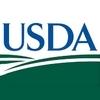Check out what is new in Poultry Industry
Find the best technical articles, forums, and videos on Poultry Industry at Engormix. Enter now and interact with the world's largest agricultural social network.
1. Introduction For more than 50 years, antibiotic growth promoters (AGPs) have been used in agricultural animal production as a means to increase growth performance through maintained animal health and improved feed efficiency [1]. During the last decades, global concern about development and transference of antimicrobial resistance from animal to human strains is rising [2]. The benefits of AGPs use in production animals are of ten argued to be outweighed by their negative...
Comments : 0
Recommendations: 0
INTRODUCTION It has been well known that branched-chain amino acids (BCAA) (Val, Leu and Ile) are not only substrates for building block protein but they are also involved in intracellular signaling pathways on protein anabolism and stimulatory effects on protein synthesis. Among the 3 BCAA, Leu has been considered most effective in stimulating muscle protein synthesis by modulating the activation of mechanistic target of rapamycin (mTOR) and its downstream effectors, ribosomal...
Comments : 1
Recommendations: 1
There has been much research recently to refine broiler requirements for calcium (Ca) and phosphorus (P), especially since the routine inclusion of phytase in broiler diets (Li et al., 2016). Phosphorus and Ca play significant roles in bone metabolism and vitamin D is also pivotal to maintaining bone integrity through the modulation of Ca metabolism (Li et al., 2017). The broiler requirement for vitamin D according to NRC 1994 is 200 IU/kg while, commercially, dietary concentrations as high...
Comments : 0
Recommendations: 0
Poultry meat is a particularly important protein source as broilers have a high feed efficiency and short production cycle compared to other animal products, making it an affordable, nutritious source of animal protein (Marangoni et al., 2015). Therefore, strategies to improve production performance of broilers will require significant research as this is key to future food security. One nutritional strategy to improve sustainability of poultry production systems is improving the efficiency...
Comments : 0
Recommendations: 2
.jpg&w=3840&q=75)

Srinivasa Farms and Hy-Line: Pioneering Growth in India’s Poultry Market
Suggested link
Non-starch polysaccharides (NSP) have a considerable impact on digestibility in broilers, dictating nutrient availability and energy utilization. The high NSP content of the hulls in canola meal are one factor limiting its effective use in poultry diets. The major NSP present in canola meal include cellulose, pectic polysaccharides and a variety of non-cellulosic polysaccharides, including arabinoxylans (AX). Attempts have been made to increase utilization of canola meal through the use of...
Comments : 0
Recommendations: 0
Published literature indicates that L-arginine (L-Arg), guanidinoacetic acid (GAA) and L-citrulline (L-Cit) can all provide arginine activity in broiler diets (Su and Austic, 1999; Dilger et al., 2013; DeGroot, 2018) and all are commercially available. GAA has been reported to have 77% arginine equivalence for feed conversion (Ringel et al., 2013). This study was conducted to determine the effect of arginine deficiency on performance in reduced protein diets and the efficacy of adding it...
Comments : 0
Recommendations: 0
Compromised leg health is a welfare and economic concern for meat chickens. Enrichment of the production environment via the provision of perches has been a focal point of research into reducing the prevalence of leg disorders in recent years. Despite inconsistent evidence of the effect of perches (Groves and Muir 2013; Phibbs et al. 2019), they are provided in almost two thirds of the Australian meat chicken industry, with 2.7 m perch/1000 birds required under the RSPCA Approved Farming...
Comments : 0
Recommendations: 0
Radio Frequency Identification (RFID) technology has been used for animal behaviour and welfare research, to monitor animal location and resource utilization. The aim of this study was to develop and validate an in-house custom built ultra-high frequency (UHF) RFID system to be used on a commercial free-range egg farm with three-tier aviaries. The system was designed and constructed to detect hens in certain areas (feeders, nest boxes, range) within the housing system. Briefly, Speedway R420...
Comments : 0
Recommendations: 0
I. INTRODUCTION Over the past few decades the meat, egg and milk sectors have faced the need to reduce the routine use of antibiotics in animal production, and the high incidence of food poisoning associated with animal product consumption. Approximately 130,000 tonnes of antibiotics were used in 2013 worldwide, with 75% of this in animals (Hughes, 2019). Up to 90% of these antibiotics can be excreted into the environment via urine and faeces, and approximately 400 resistance...
Comments : 0
Recommendations: 1
1. INTRODUCTION Salmonella enterica subsp. enterica is the most common cause of foodborne human gastroenteritis, a disease characterised by gut inflammation and self-limiting diarrhoea in humans (Winter et al., 2010). It is estimated that gastroenteritis caused by Salmonella spp. accounts for 93.8 million human cases worldwide each year (Majowicz et al., 2010). Worldwide, contaminated food products of animal origin, particularly egg and egg products, are...
Comments : 0
Recommendations: 2
by Sam Shafer
Poultry scientists find potential link between valine×leucine interactions and woody breast
According to a new study in The Journal of Applied Poultry Research , producers have little to worry about when it comes to branched-chain amino acid interactions and their effects on broiler live performance...
Comments : 0
Recommendations: 0
by Sam Shafer
Disinfecting vehicle surfaces appears to help control viral spread
In 2016 and 2017, duck farmers in France faced the grim reality of having to depopulate their flocks due to avian influenza outbreaks. A study conducted at the time showed that the trucks and crates used for bird transport during this disease-control effort were often not decontaminated correctly.
In 2020 and 2021 came another wave of...
Comments : 0
Recommendations: 0
.jpg&w=3840&q=75)

Disrupt the 4D, Diarrhoea, Dysentery, Death, Dehydration, in poultry and pigs
Suggested link
by Sam Shafer
Higher stocking density linked to lower body weight and weight gain, but is total antioxidant capacity the culprit?
Poultry scientists have found that a goose’s performance is closely tied to their housing conditions. But while there are several studies linking high stocking density to health problems in geese, research is lacking when it comes to the actual physiological drivers behind...
Comments : 0
Recommendations: 0
Introduction The impressive genetic improvement of poultry growth rate has led to a modern bird with a very low feed conversion rate (FCR), high average daily gain (ADG) and low mortality. Unfortunately, this fast growth rate is often directly linked with digestive problems, such as bacterial enteritis (BE) or dysbacteriosis and even necrotic enteritis (NE). These intestinal health problems have significantly increased since the ban on meat and bone meal and the ban of...
Comments : 0
Recommendations: 6
...
Comments : 0
Recommendations: 1
...
Comments : 1
Recommendations: 2


Effects of Muco-defen® on Clostridium perfringens-induced necrotic enteritis in broilers
Suggested link
The Problem Gut and oviduct microbiota are closely related, especially because of the common connection with the cloaca. In this condition, modulating the gut microbiota with multi-strain probiotic supplementation may change the oviduct tract microbiota. How we investigated or researched the problem Hyline W36 laying hens housed in commercial aviaries were evaluated. Control animals were fed the farm’s conventional diet. The 2nd treatment received the...
Comments : 0
Recommendations: 1
INTRODUCTION Due to the price volatility of conventional feed ingredients, there is an ever-growing need to include relatively inexpensive alternatives such as fats in the diets. Such an approach might relatively reduce feed costs and simultaneously increase the energy density of the diets to meet the requirements of the modern fast-growing broilers. Fats are known to be a concentrated energy source, with at least twice as much energy as carbohydrates and proteins [1]. Alongside...
Comments : 0
Recommendations: 0
1. Introduction In Pakistan, the poultry production sector in the form of eggs and meat is playing a pivotal role in bridging the gap between the supply and demand of animal protein. Presently this sector is producing 1681.64 metric tonnes of meat and 16,797 million eggs and these figures are in a constant increase [1]. Previously, egg production was limited to the backyard poultry, where desi hens having little potential for this very economical trait were used. The addition of...
Comments : 0
Recommendations: 1
Introduction Coccidiosis is the most common parasitic disease caused by Eimeria spp., leading to over $14 billion economic loss worldwide annually (Blake et al., 2020). The most prevalent Eimeria spp. in poultry include E. tenella, E. maxima, E. acervulina, E. brunetti, E. necatrix, E. praecox, and E. mitis and have different level of pathogenicity and specific infection sites in the intestine (Cervantes et al., 2020). Eimeria spp. invade intestinal epithelial tissues and induce...
Comments : 1
Recommendations: 1























.jpg&w=3840&q=75)












